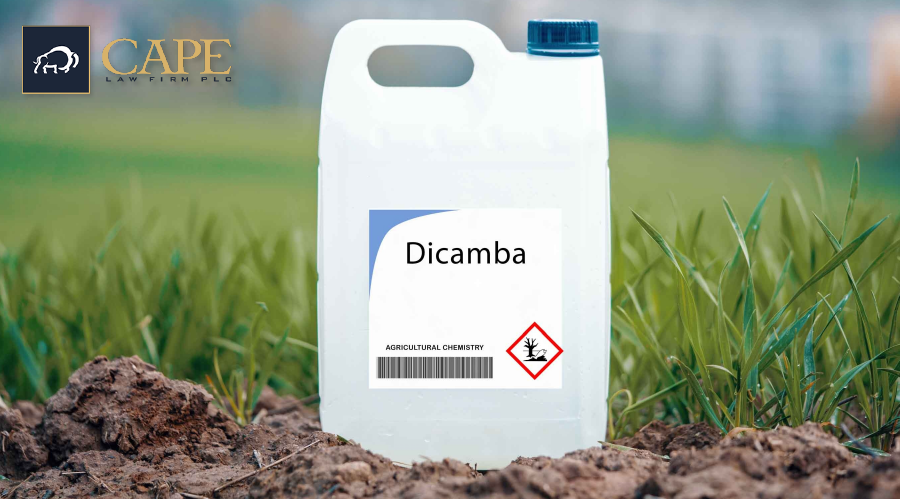New Dicamba Label Open for Public Comment
The Environmental Protection Agency (EPA) has opened a 30-day public comment period for Bayer’s dicamba laberl – the herbicide, called “KHNP0090,” formerly known as Xtendimax. This is apparently Bayer’s second registration submission for dicamba following a federal court’s order vacating the previous dicamba label registrations earlier this year.
A copy of the proposed label is attached here. Changes include:
- No post-emergence application in soybeans, i.e., there is no over-the-top option;
- June 12 application cut-off for soybeans;
- July 30 application cut-off for cotton; and
- A reduction in the maximum annual rate to 44 oz. for both soybeans and cotton.
While Bayer publicly proclaims that it “stands fully behind the technology,” that isn’t really accurate. The new dicamba label indicates that the risk of use in most farming environments falls squarely on the purchaser and applicator, and Bayer disclaims responsibility for a host of “unintended consequences.”
The EPA is accepting public comments on the newly proposed dicamba label until June 3, 2024. You can submit comments to the EPA’s docket (EPA–HQ–OPP–2024–0154) for the new label on Regulations.gov which you can access Here.
A Purple Tomato (Almost) Escapes
In a recent report by NPR, Baker Creek Heirloom Seeds believed it had found the world’s first non-GMO purple tomato – the Purple Galaxy Tomato allegedly developed by a hobby plant breeder in France. The problem – Purple Galaxy apparently wasn’t a newly developed variety, but instead was the engineered variety developed by Norfolk Plant Sciences which was recently approved for sale in the U.S. Although Baker Creek indicated that Purple Galaxy tested negative for a common GMO marker, the company has pulled the variety from their collection and destroyed its seedstock. The consensus opinion is that the variety from Baker Creek is actually Norfolk’s GMO variety.
The harder question to answer is how Norfolk’s patented variety wound up in an heirloom seed catalog? In theory, access to Norfolk’s variety should have been quite limited since it only recently received regulatory approval for commercialization and seed should only be available through approved channels. The most likely explanation is that seed or plant material of Norfolk’s variety was misappropriated sometime during the 20 years it was under development.
Florida Sends Cultivated Meat Back to the Lab
Florida became the first state in the nation to ban cultivated (lab-grown) meat with the passage of SB 1084 into law last week. The new law makes it illegal to sell, offer to sell, manufacture for sale, or distribute cultivated meat in the state. Cultivated meat is defined as “any meat or food product produced from cultured animal cells.” Violation of the law are punishable as a criminal misdemeanor. In signing the bill into law, Governor DeSantis said that “Florida is fighting back against the global elite’s plan to force the world to eat meat grown in a petri dish or bugs to achieve their authoritarian goals.”
The new law is not likely to have much impact in the near term since cultivated meat just recently cleared regulatory approvals and cultivated meat has yet to make it into grocery stores and restaurants and is still in the process of scaling up. The new law also does not apply to meat made from plants such as Impossible Meat.





